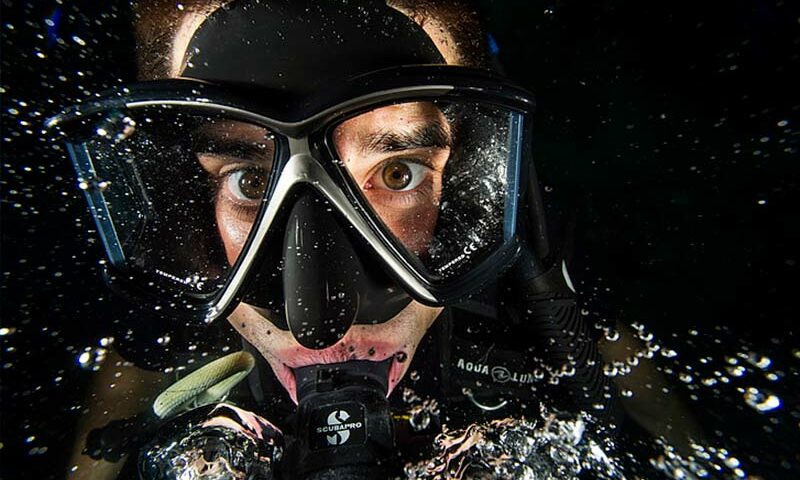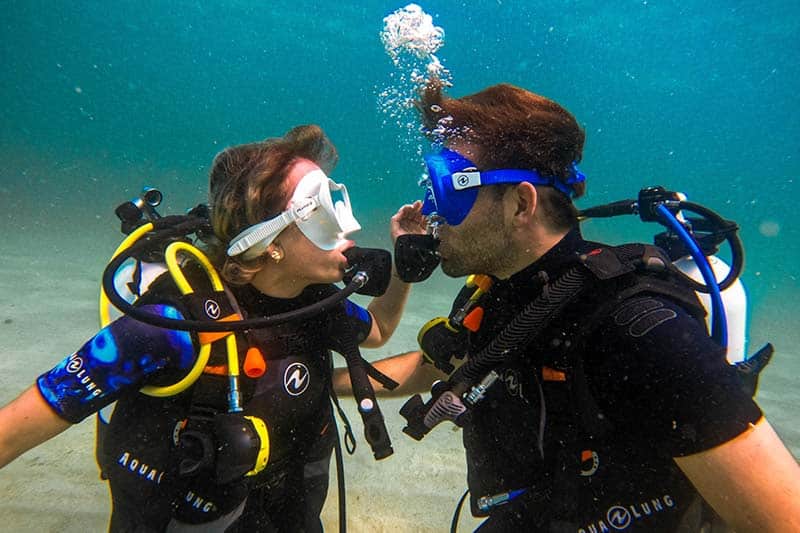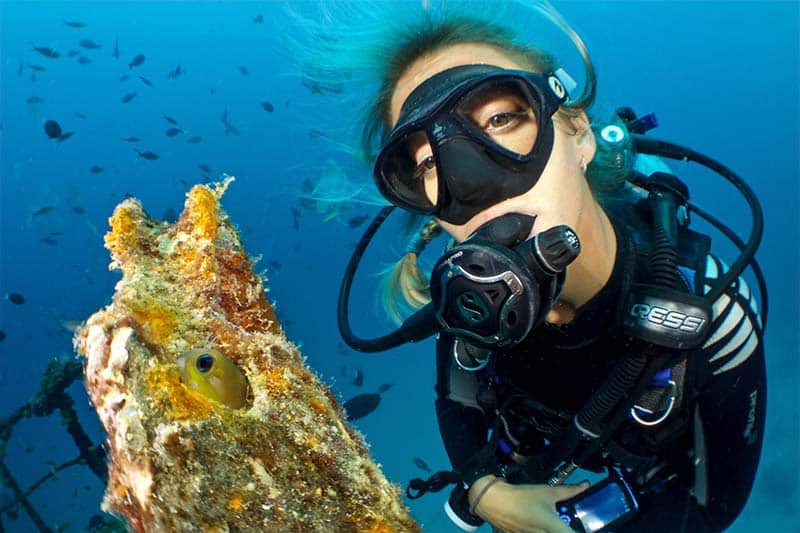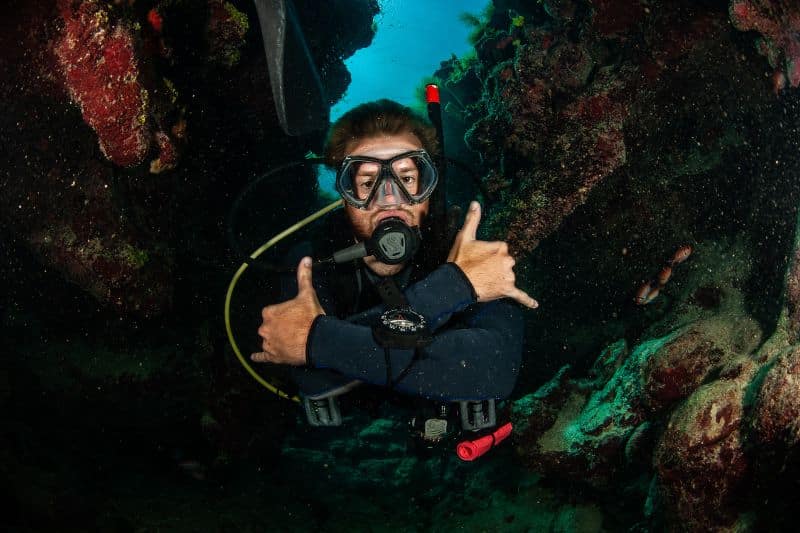If you’re reading this article, it’s because you’re interested in scuba diving with asthma, or you know someone with this condition who dives. We wrote this article to address your concerns. However, it’s important to note that the authors of the content you’re about to read are not medical professionals but experienced scuba divers. So, note that nothing we say can replace the opinion of a medical specialist in scuba diving and asthma.
So, to reply to the question “Can I scuba dive with asthma?” we should consider the following fact: the topic of asthma and diving has been debated in the recreational diving community for a long time. Due to theoretical concerns about an increased risk inherent to diving, asthmatic divers were approached very cautiously, and scuba diving was not allowed.
However recent studies and experiences have shown that it is possible to scuba dive with asthma. In fact, with proper precautions, people with asthma can enjoy the wonders of the underwater world just like anyone else.
Take a look at our content table.







